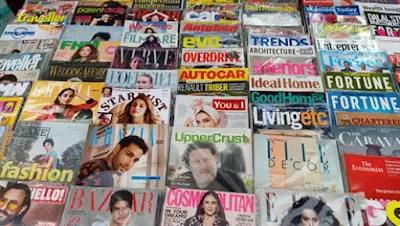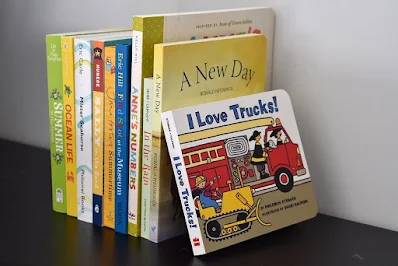PUBLICATION
To publish is to make content available to the general public. While specific use of the term may vary among countries, it is usually applied to text, images, or other audio-visual content, including paper. The word publication means the act of publishing, and also refers to any printed copies.
 |
Define different type of publications |
TABLE OF CONTENT
WHAT IS PUBLICATIONS
To publish is to make content available to the general public. While specific use of the term may vary among countries, it is usually applied to text, images, or other audio-visual content, including paper. The word publication means the act of publishing, and also refers to any printed copies.
The act or process of producing (a printed work) and selling it to the public. It is a printed work (as a book or magazine) made for sale or distribution.
What is the use of Publications
To publish is to make content available to the general public. While specific use of the term may vary among countries, it is usually applied to text, images, or other audio-visual content, including paper (newspapers, magazines, catalogs, etc.)
DEFINE DIFFERENT TYPE OF PUBLICATIONS
There is an enormous variety of material types of publication, some of which are:
Book: Pages attached together between two covers, to allow a person to read from or write in.
Bulletin: Information written in short on a flyer or inside another publication for public viewing. Bulletins are also brief messages or announcements broadcast to a wide audience by way of television, radio, or internet.
Booklet: Leaflet of more than one sheet of paper, usually attached in the style of a book.
Broadside: A large single sheet of paper printed on one side, designed to be plastered onto walls. Produced from 16th - 19th cent. Became obsolete with the development of newspapers and cheap novels.
Flyer or handbill: A small sheet of paper printed on one side, designed to be handed out free
Leaflet: Single sheet of paper printed on both sides and folded.
Journal: A book with blank pages inside, to allow you to write down any personal information. Another word for a newspaper or similar publication.
Newsletter: A bulletin, leaflet, pamphlet, or newspaper distributed to a specific audience.
Newspaper: A publication of several pages printed with news, sports, information, and advertising. Newspapers may be published and distributed daily, weekly, monthly, quarterly, or annually.
Magazine: A book with front and back paper covers, printed with information and advertising. Some magazines are published and distributed every week or every month.
Pamphlet: Can be a leaflet, booklet or saddle-stapled booklet.
Electronic publishing (also referred to as e-publishing or digital publishing or online publishing) includes the digital publication of e-books, digital magazines, and the development of digital libraries and catalogues. Electronic publishing has become common. It is also becoming common to distribute books, magazines, and newspapers to consumers through digital devices, by online sources.
NEWSPAPER
A newspaper is a serial publication which contains news on current events of special or general interest. The individual parts are listed chronologically or numerically and appear frequently, usually at least once a week but sometimes fortnightly or monthly.
A newspaper is a periodical publication containing written information about current events and is often typed in black ink with a white or gray background.
Newspapers can cover a wide variety of fields such as politics, business, sports and art, and often include materials such as opinion columns, weather forecasts, reviews of local services, obituaries, birth notices, crosswords, editorial cartoons, comic strips, and advice columns.
Most newspapers are businesses, and they pay their expenses with a mixture of subscription revenue, newsstand sales, and advertising revenue. The journalism organizations that publish newspapers are themselves often metonymically called newspapers.
Newspapers have traditionally been published in print (usually on cheap, low-grade paper called newsprint). However, today most newspapers are also published on websites as online newspapers, and some have even abandoned their print versions entirely.
A newsletter is a printed or electronic report containing news concerning the activities of a business or an organization that is sent to its members, customers, employees or other subscribers. Newsletters generally contain one main topic of interest to its recipients. A newsletter may be considered grey literature.
A newsletter is a tool used by businesses and organizations to share relevant and valuable information with their network of customers, prospects and subscribers. Newsletters give you direct access to your audience's inbox, allowing you to share engaging content, promote sales and drive traffic to your website.
There are three types of newsletters: the company newsletter, the consumer newsletter, and the organization newsletter.
MAGAZINE
A periodical publication containing articles and illustrations, often on a particular subject or aimed at a particular readership.
Magazines are published monthly instead of daily. Magazine, a publication issued at regular intervals, usually weekly or monthly, containing articles stories , photographs, advertisement, and other features, with a page size that is usually smaller than that of a newspaper but larger that that of a book.
A magazine is a publication with a paper cover which is issued regularly, usually every week or every month, and which contains articles, stories, photographs, and advertisements. Her face is on the cover of a dozen or more magazines. ... In an automatic gun, the magazine is the part that contains the bullets.
BOOKS
VISITING CARDS
 |
Define Visiting Cards - What is Visiting Card |
The business card represents your company's brand. Not only does it convey important personal contact information such as name, title, email, website, address and phone number, but oftentimes it is also the first exposure to the overall image of the business.
LETTER HEADS
 |
Define Letterhead - What is Letterhead |
A letterhead, or letterheaded paper, is the heading at the top of a sheet of letter paper. That heading usually consists of a name and an address, and a logo or corporate design, and sometimes a background pattern. The term "letterhead" is often used to refer to the whole sheet imprinted with such a heading
A letterhead is one of the most important printing collaterals in any business. More than just a means of correspondence, it is also a physical representation of your company. It can say a great deal about your brand image and is an essential part of your Company's sales and marketing communications strategy
A letterhead is the heading – usually at the top, of the letter paper (or stationary). It typically includes the company logo, company name, address, and contact information. A well-designed letterhead acts like a company pad that makes letter papers look much more formal and professional
BROCHURES
1. Gate-Fold
These brochures are used quite seldom because they are a little expensive than the traditional brochure graphic designs. Hence, they are mostly printed for high-end marketing purposes. The inward fold of this brochure makes it compact and easy to carry around. The brochure’s eight-panel structure provides more space for graphic designs, illustrations, information, and images of the product or service of your brand in detail.
2. Bi-Fold
This is the most commonly used brochure type among companies. A bi-folded brochure is created by folding the brochure into two equal halves. In this fold, the brochure has four panels to display information- the front cover, back cover along with two internal panels. This brochure is easy to hold like a book and skim through information. A booklet is an advanced version of the bi-fold brochure where there are multiple pages added to the brochure making it appear more like a mini magazine. This kind of brochure is excellent for companies that want to advertise multiple products. It can also be used as restaurant menus.
3. Tri-Fold
This brochure is exactly what the name suggests. It consists of three folded panels that provide enough space to display information. It can be folded in many ways to optimize its functionality. Horizontal folds for wider but shorter panels. Vertical folds for narrower but taller panels. Such folds make the 6-panelled brochure a compact one, making it easier to read it and carry along.
4. Z-Fold
This brochure is folded into a distinct zigzag ‘Z’ shape. The Z-fold brochure is commonly used when the information is image-heavy. The brochure has six panels in total giving plenty of room to display image-centric graphic designs that can spill-over from one panel to the other. This brochure is best used for large graphs, maps, food menus, product details, or any image-heavy design. The more advanced version of this brochure with more zigzag folds is called an accordion fold brochure.
POSTERS
A poster is a temporary promotion of an idea, product, or event put up in a public space for mass consumption. Typically, posters include both textual and graphic elements, although a poster may be either wholly graphical or wholly text. Posters are designed to be both eye-catching and informative.
So here are some common types of posters to consider when promoting your business.
- Infomercial Posters: An infomercial poster is the most common type of poster.
- Formative Posters.
- Show Posters.
- Political Ad Posters.
- Fashion Posters.
- Corporate Posters.
- Campaign Posters.
- Subject Posters.
Posters are designed to be both eye-catching and informative. Posters may be used for many purposes. They are a frequent tool of advertisers (particularly of events, musicians, and films), propagandists, protestors, and other groups trying to communicate a message.








No comments:
Post a Comment